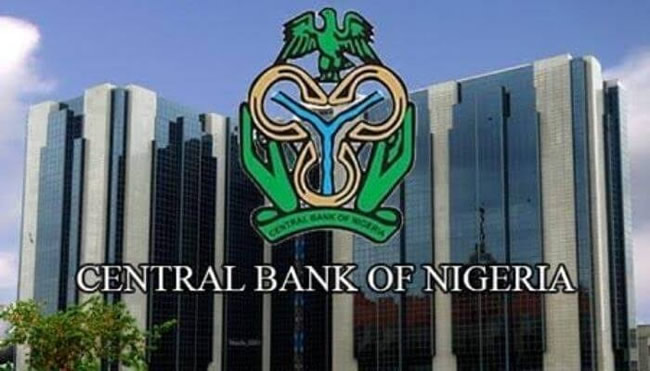Nigerian banks’ lending, in the month of March, to the private and public sectors dropped by N23.99 trillion, data from the Central Bank of Nigeria (CBN) has shown.
Analysis of the data indicated that borrowings to the private sector reduced to N71.21tr in March 2024 when compared to the N80.86tr in February, making a N9.65tr difference.
For the public sector, it reduced by N14.34tr or 42.3 per cent to N19.59tr in March from N33.93tr it borrowed in February 2024.
This reduction is coming on the heels of improved growth in the economy where credit to the private sector had escalated by 66 per cent compared to the same period in 2023.
- Jalingo residents demand connection to Kashinbilla Hydro-Power Station amid power outage
- Coastal highway will end Atiku’s presidential ambition – Presidency
According to the CBN, January 2024 started on a high note as credit reached N76.29 trillion, significantly up from N41.54 trillion in January 2023.
This upward trend continued into February when it peaked at N80.86 trillion.
This decline marks a significant shift from the previous year, reflecting a 29 per cent decrease compared to the year 2023.
January 2024 saw government credit at N36.18 trillion, up from N26.64 trillion in January 2023, showing an initial increase. However, subsequent months witnessed variable reductions, culminating in the substantial drop observed in March.
While analysts have attributed the low borrowing to several factors, they said this might be an early sign of recession if the dip continued.
A financial expert and senior partner at SPM Professionals, Paul Alaje, said the drop in borrowing might be due to the banks not interested in giving out funds to its lenders or businesses finding it challenging to run their business on borrowings.
He said within the period, the CBN had not reviewed its Monetary Policy Rate (MPR) but by the time the MPR was reviewed, there was major lending going to the government.
“For the private sector, which of course had more impact on the overall economy, the cost of borrowing became really high and inconvenient with high inflation. So, businesses had to have a double check before they could borrow from banks. Again, banks could also be watching their balance sheets to be sure that if they give loans at this time, it will not affect their overall performance. So, there are quite a number of things that may be responsible.”
On the implication, he said reduction in loans to the public and private sectors makes it difficult for the economy to expand.
“The economy is market-based. If banks are not giving loans as much as they should, it may lead the economy into recession. However, it may be too early to say this until we have seen this persist for a while.”
“We can’t conclude that the economy is going into recession but what I can say is that if this is a pattern, it could be a downtime for lending for we need to study the numbers very carefully for another one to two quarters before we can ascertain whether the economy is going into recession or will bounce back very strongly.”
On his part, Prof. Uche Uwaleke, the President, Capital Market Academics of Nigeria, said this is the kind of result possible when policy rate is jerked up by 600bps within one month, adding that CRR is raised to unprecedented high of 45 per cent and Loan to Deposit ratio cut by 15 per cent all dished out at the same time.
“Yet, the inflation monster appears unperturbed by all these pebbles thrown at it, which end up hitting the wrong target – output. The reality is that in view of the major drivers of inflation in Nigeria, any meaningful inflation reduction will never be instantaneous regardless of how high the MPR is raised.”
He said significant inflation reduction should be pursued as a holistic programme involving both monetary and fiscal authorities with the latter taking the lead.
“It goes without saying that once the government is able to get a firm grip on energy challenges (electricity and fuel), banditry/kidnapping, food insecurity, transport challenges and flooding, the era of double-digit inflation will become history. Until then, the CBN will be struggling to clap with one hand,” he added.

 Join Daily Trust WhatsApp Community For Quick Access To News and Happenings Around You.
Join Daily Trust WhatsApp Community For Quick Access To News and Happenings Around You.


